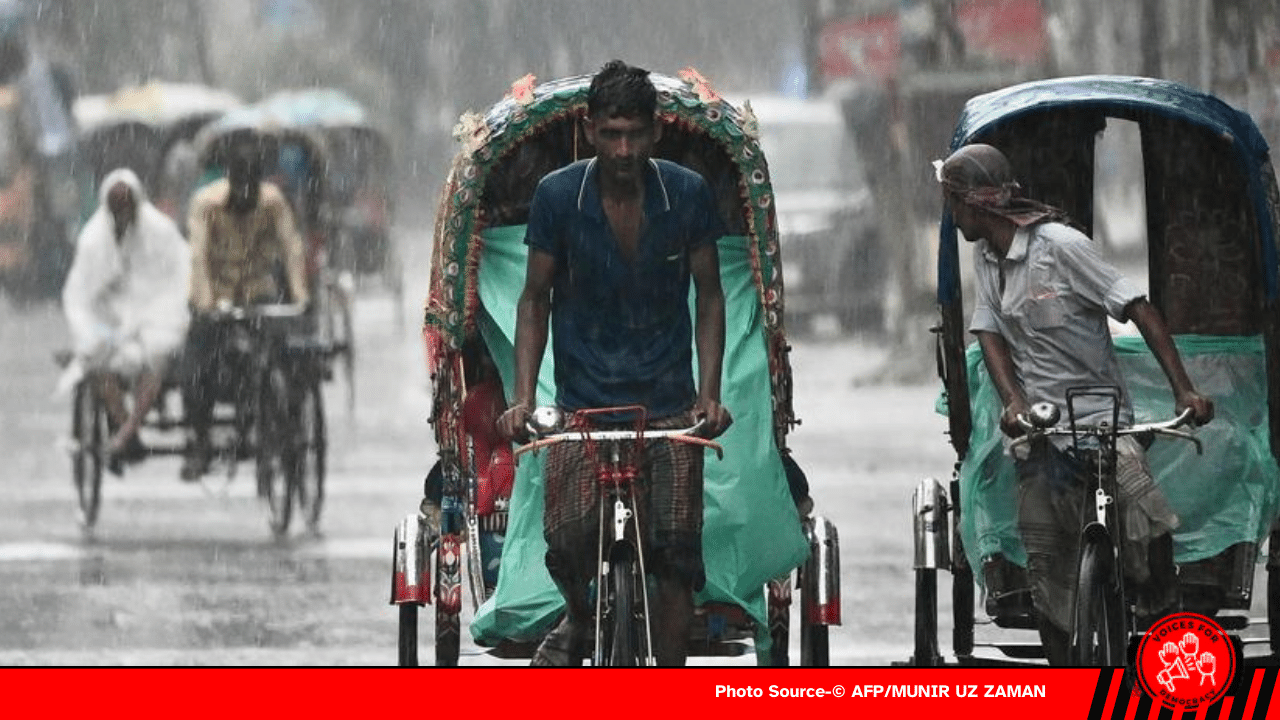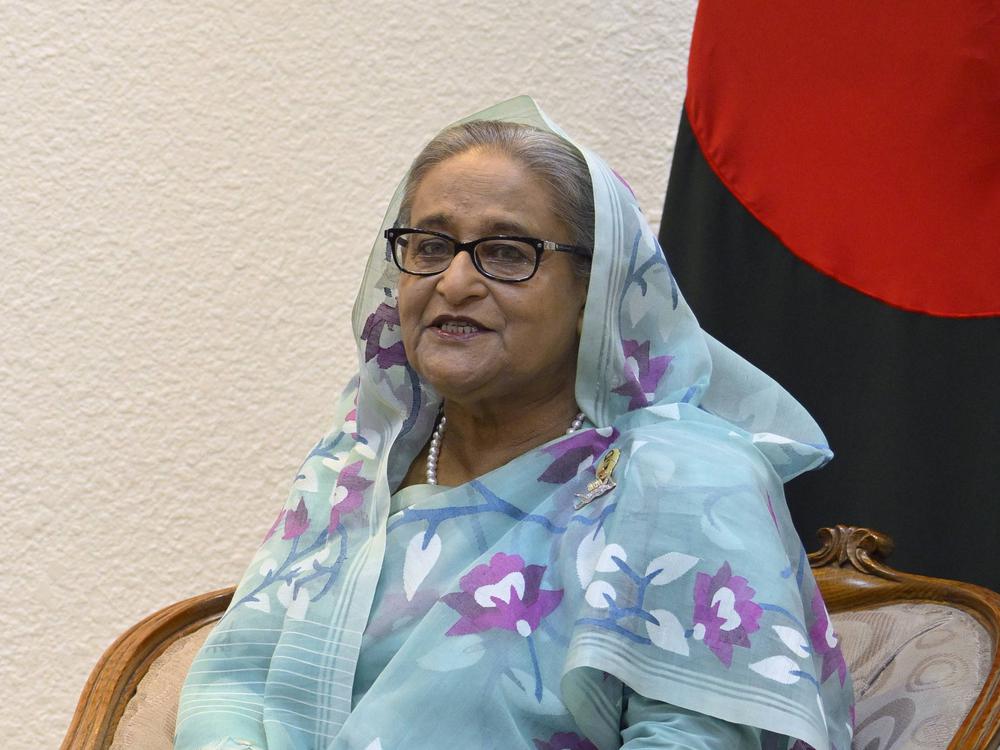
In January, Bangladesh will elect a new government, but the incumbent prime minister is suppressing the opposition. Where is the country headed?
In early October, Sheikh Hasina, the prime minister of Bangladesh, inaugurated the new terminal at the Hazrat Shahjalal International Airport in Dhaka, surrounded by journalists. It was a symbolic image.
However, it will likely be some time before flights actually take off from the new Terminal 3. The building is barely more than a carcass. Still, there was cause for celebration. Elections are coming up in Bangladesh, and the government led by the Awami League can use any good news it can get.
Higher average wages than India
The January 7th election will kick off the 2024 super-election year in South Asia: Pakistan, India, and Sri Lanka also electing new parliaments or presidents by the end of the year.
Bangladesh can look back on great successes in the recent past. After a bloody war of independence against Pakistan in 1971, the country of 170 million inhabitants was long regarded as the poorhouse of South Asia.
The country, which is majority Muslim, has recently experienced almost miraculous economic growth and now has a higher average income than its powerful neighbor India.
11 billion euros was the volume of trade between Bangladesh and Germany in 2022 alone, mainly in the textile industry.
The country on the Bay of Bengal, which is only about 1.5 times the size of East Germany, now has a larger economy than the entire Maghreb region. In 2022, the volume of trade with Germany alone amounted to around 11 billion euros, mostly in the textile industry. The trend is upward.
Over 20 million people live in Dhaka. In the streets of elite neighborhoods like Gulshan or Banani, one luxurious glass tower after another is shooting up out of the ground. The capital is like a single construction site.

Sheikh Hasina has been in power for nearly 15 years. But a mood of change is spreading across the country. Rising living costs, rampant corruption, and limited opportunities for advancement are causing problems for not only the poorer segments of the population.
Even representatives of the ruling Awami League say in private conversations that they no longer expect to win in free elections. But the ruling party is clinging to power.
Climate of suppression
“The outcome of this joke of an election is already clear: the parliamentary seats will be divided between the ruling party and its allies,” fears Ali Riaz, a well-known political scientist who teaches at Illinois State University in the USA.
10,000 members of the opposition have been arrested by law enforcement agencies since the end of October alone, according to human rights organization Human Rights Watch.
According to the human rights organisation Human Rights Watch, the security authorities have arrested almost 10,000 members of the opposition since the end of October alone, and at least 16 people have died, including two police officers.
More than 5,000 people were injured. In addition, there have been hundreds of extrajudicial killings and arrests in recent years under the guise of fighting digital misinformation.
The pressure on civil society actors, such as Nobel Peace Prize winner Muhammad Yunus or, most recently, the textile labour movement and its leaders such as Kalpona Akter, has also increased.
Even renowned journalists such as the popular talk show host Zillur Rahman are caught in the spotlight of the authorities. Rahman is not even less critical of the opposition.
Polarizing system
The party spectrum is highly fragmented. Since independence, two political dynasties have alternated in power, interrupted by military dictatorships. Both derive their legitimacy from important figures in the 1971 independence war, and both are led by women.
The secular Awami League under Sheikh Hasina, the daughter of the leader of the independence movement, Mujibur Rahman, and the Bangladesh Nationalist Party (BNP) under the leadership of the elderly Khaleda Zia, the wife of the former president Ziaur Rahman, who first proclaimed independence in a radio address. The deep and very personal hatred between the two dynasties goes back to the early years of independence.
The Bangladesh Nationalist Party (BNP) has a leadership problem.
– Amena Mohsen, Professor at Dhaka University.
The BNP is likely to boycott the elections. Instead, it is trying to bring the protest to the streets with blockades and strikes. Many of the party’s leaders are in custody.
At the same time, the BNP’s human rights record during its own terms in government was hardly better. The party was repeatedly shaken by corruption scandals. Party leader Tarique Rahman, the son of Khaleda Zia, keeps the party ranks in line with a firm hand from exile in London. “The BNP has a leadership problem,” says Amena Mohsen of Dhaka University. Both parties are responsible for the escalation of the situation.
Indian-American conflicts of interest
Another factor that is influencing the elections: Geopolitics. Bangladesh is trying to navigate between the great powers and maintains close but complex relations with China, the United States, India, and the EU. The relationship with Russia is also friendly. Moscow recently delivered uranium for the country’s first nuclear power plant.
The impression is that the United States raises human rights issues in some countries but not in others
– Amena Mohsen, Professor at Dhaka University.
The United States and the EU are strongly in favour of free elections in the context of the growing systemic rivalry with China. In May, the United States even imposed sanctions against individuals who “undermine the democratic electoral process in Bangladesh.”
However, the United States has a credibility problem. “The impression is that the United States raises human rights issues in some countries but not in others,” says academic Amena Mohsen.
In Bangladesh, it is unforgettable that the US government turned a blind eye to the atrocities of the Pakistani army during the 1971 independence war when Henry Kissinger, who recently died, was in power. Hundreds of thousands of people died.
The frustration on the streets will not disappear
After some turbulence, India has clearly sided with the Awami League. The main reason for this is likely to be an influential ally of the BNP: the Islamist Bangladesh Jamaat-e-Islami. The Hindu nationalist government under Narendra Modi is afraid of a strengthening of political Islam in the neighboring country and therefore strengthened its support for Sheikh Hasina, even though her Awami League also cooperated with the Islamists in the past when necessary.
And so everything is currently leading to the fact that the old government in Dhaka is also likely to be the new one. Not a few observers fear then another wave of purges against dissenters. The frustration on the street will hardly be able to be suppressed indefinitely.
